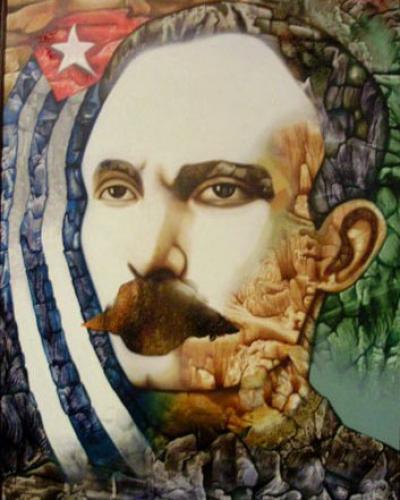In 1886, four anarchist leaders were hanged in Chicago.
Two hundred thousand people took part in the funeral procession, either lining the streets or marching behind the hearses. Unfortunately, the events surrounding the execution of what became known as the Haymarket martyrs fueled the stereotype of radical activists as alien and violent, thereby contributing to ongoing repression in the US. Over the years the remains of many deceased or martyred radicals, among them Emma Goldman, Bill Hayward, and Joe Hill, were deposited at the Haymarket Monument in Chicago.
Ever since that time, in almost every country May 1 has been honored as International Workers Day.
The internationalization of the Haymarket legacy was apparent two days after the hangings when José Martí, leader of Cuba’s struggle for independence from Spain, who was then living in exile in New York, wrote a detailed, emotion-filled report of the events leading up to the executions. Full of analysis, his article entitled “A Terrible Drama” appeared on January 1, 1888, in the Argentinian paper La Nación, published in Buenos Aires. Martí wrote:
“Frightened by the growing power of the plain people, by the sudden coming together of the working masses (previously held back by the rivalries of their leaders), by the demarcation of two classes within the population — the privileged and the discontented (the latter a thorn in the side of European high society) — the republic determined to defend itself.”
At the end of his long article José Martí said:
“We have lost a battle, unhappy friends, but we will see in the end an ordered world that conforms to justice: we will be wise like the serpent and quiet like the dove.”
Even a cursory reading of Martí’s voluminous collection of dispatches to Latin American newspapers from New York underscores his passionate interest in labor issues.
Since his days in Mexico as a journalist 1875-1876, where he participated prominently in debates about trade unions and strikes, Martí considered labor to be the most important social issue facing the developed world. The dramatic scale of conflict between workers and capitalists in the U.S. struck him as an epochal struggle that would define the relationship between labor
and capital in the world: “In this colossal theatre” he wrote, “will arrive at an end to a colossal problem.” (“Letter from Nueva York”, 12 March 1882;
His interest in the labor question was not academic; the conflict between capitalists and workers was a domain where broader issues of economic practice, social justice and politics could be studied with an eye on the challenges facing an independent Cuba in the future. The importance of Martí’s writings on U.S. labor and particularly the Haymarket Affair cannot be overstated. There is a broad consensus among scholars that this event was key in radicalizing Martí’s already critical attitudes toward the U.S., setting the stage for his later, more urgent missives against U.S. imperialism in Latin America.
Martí loved Emerson’s poem May-Day. Here are a few lines from that poem:
Where shall we keep the holiday,
And duly greet the entering May?
Too strait and low our cottage doors,
And all unmeet our carpet floors;
Nor spacious court, nor monarch's hall,
Suffice to hold the festival.


